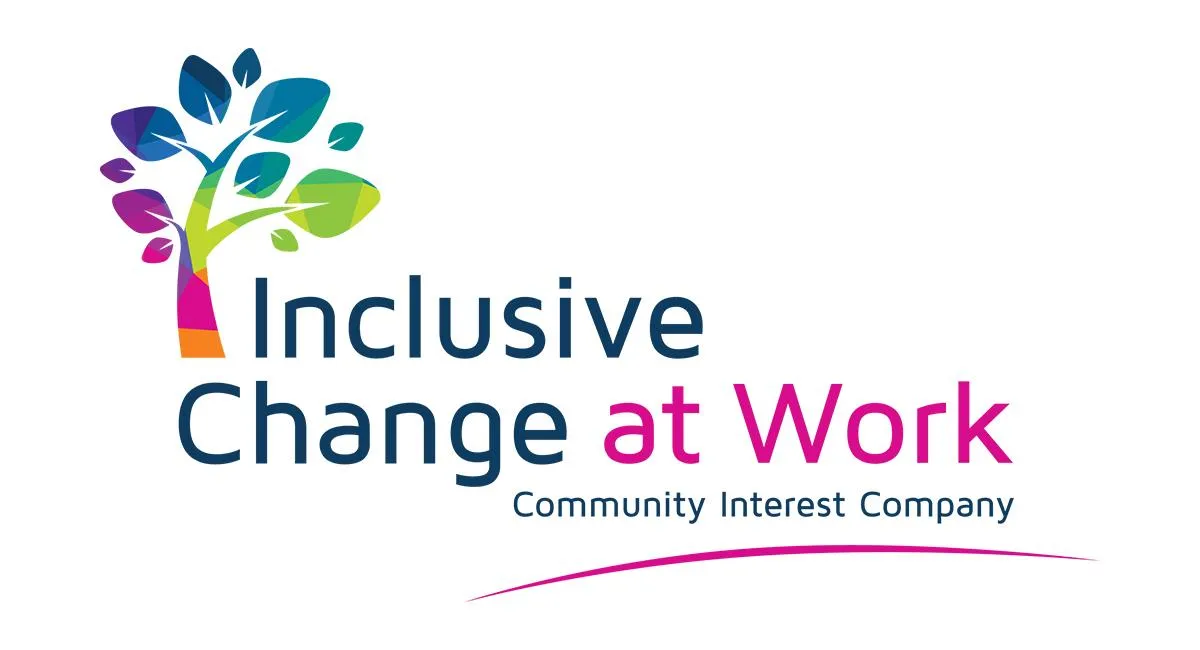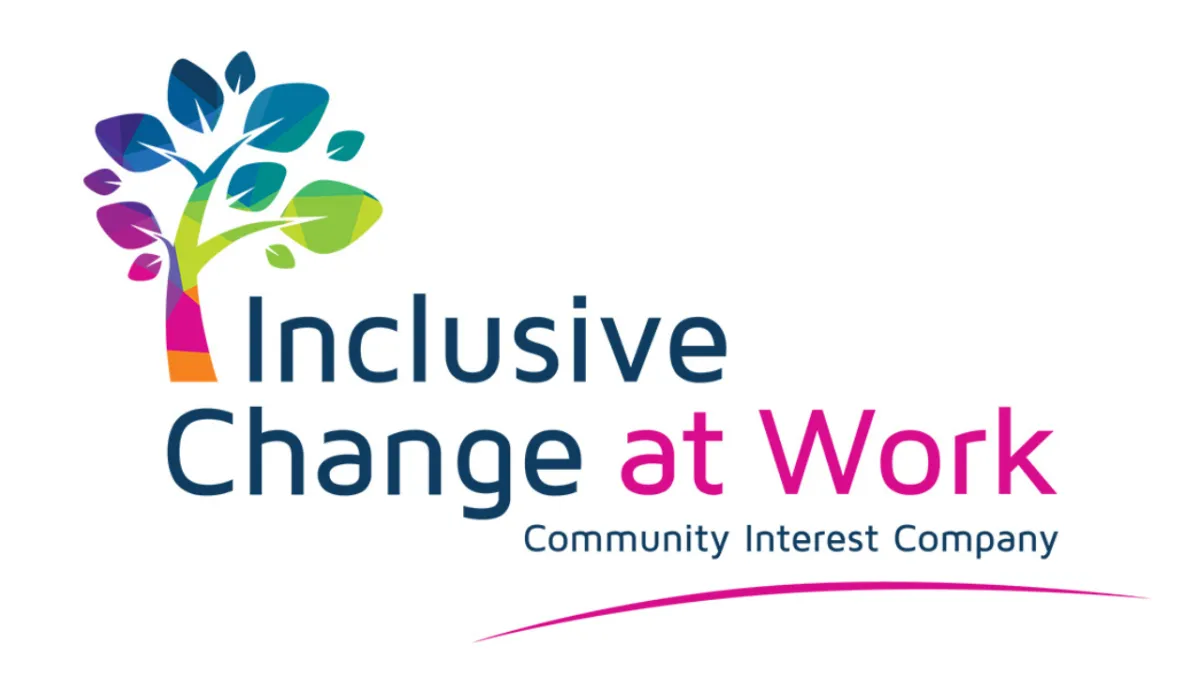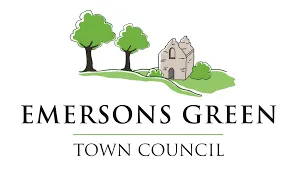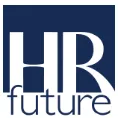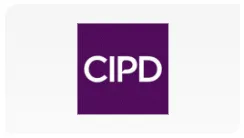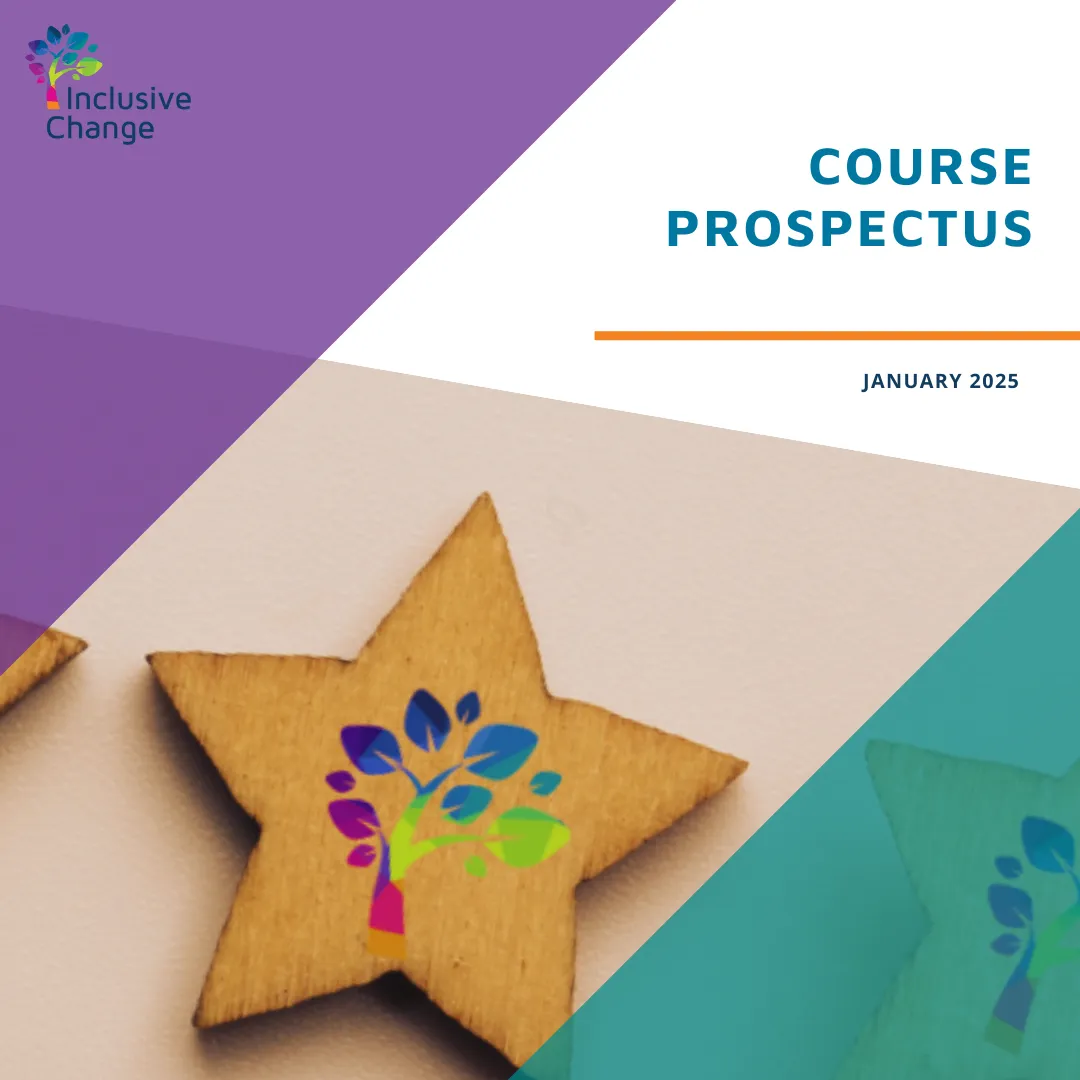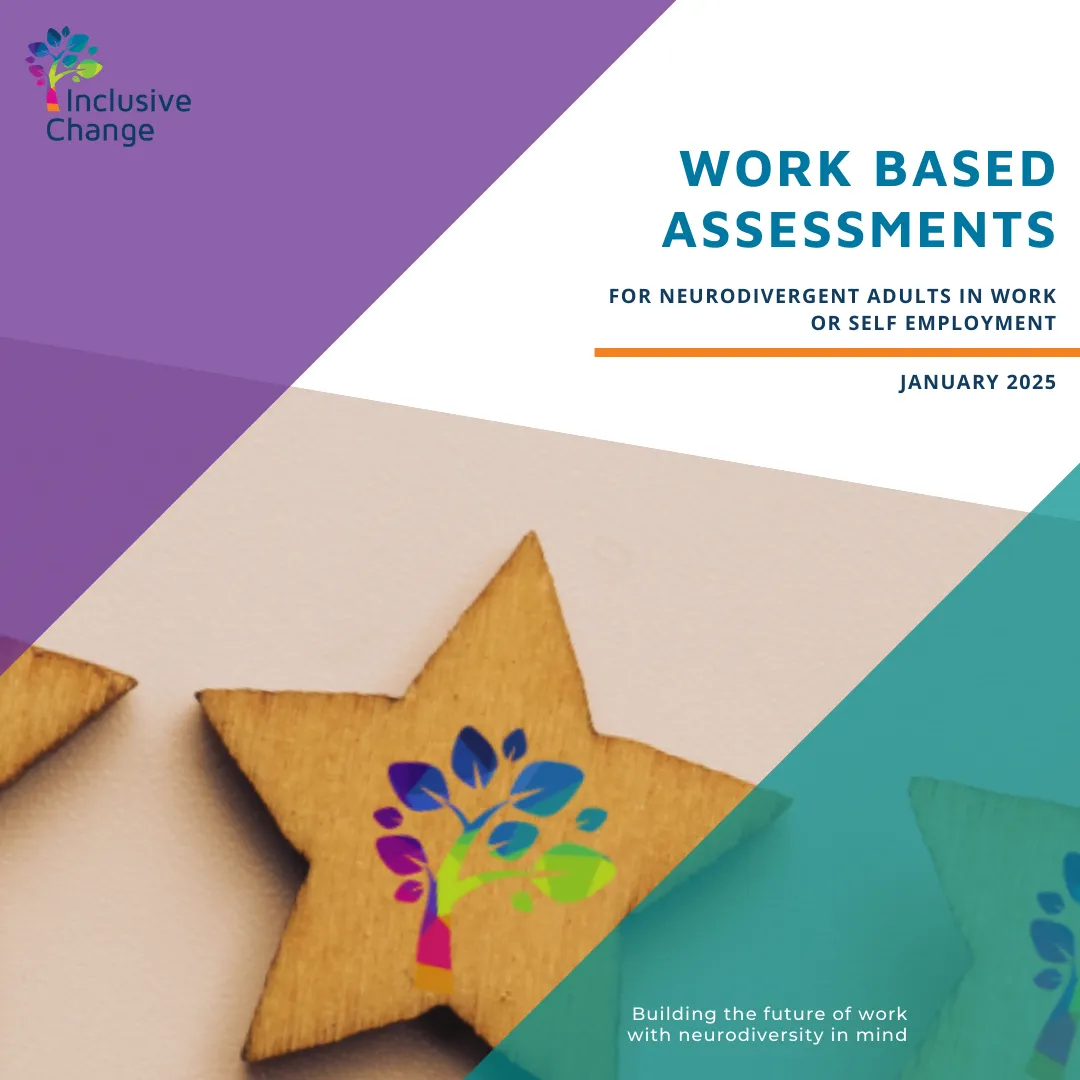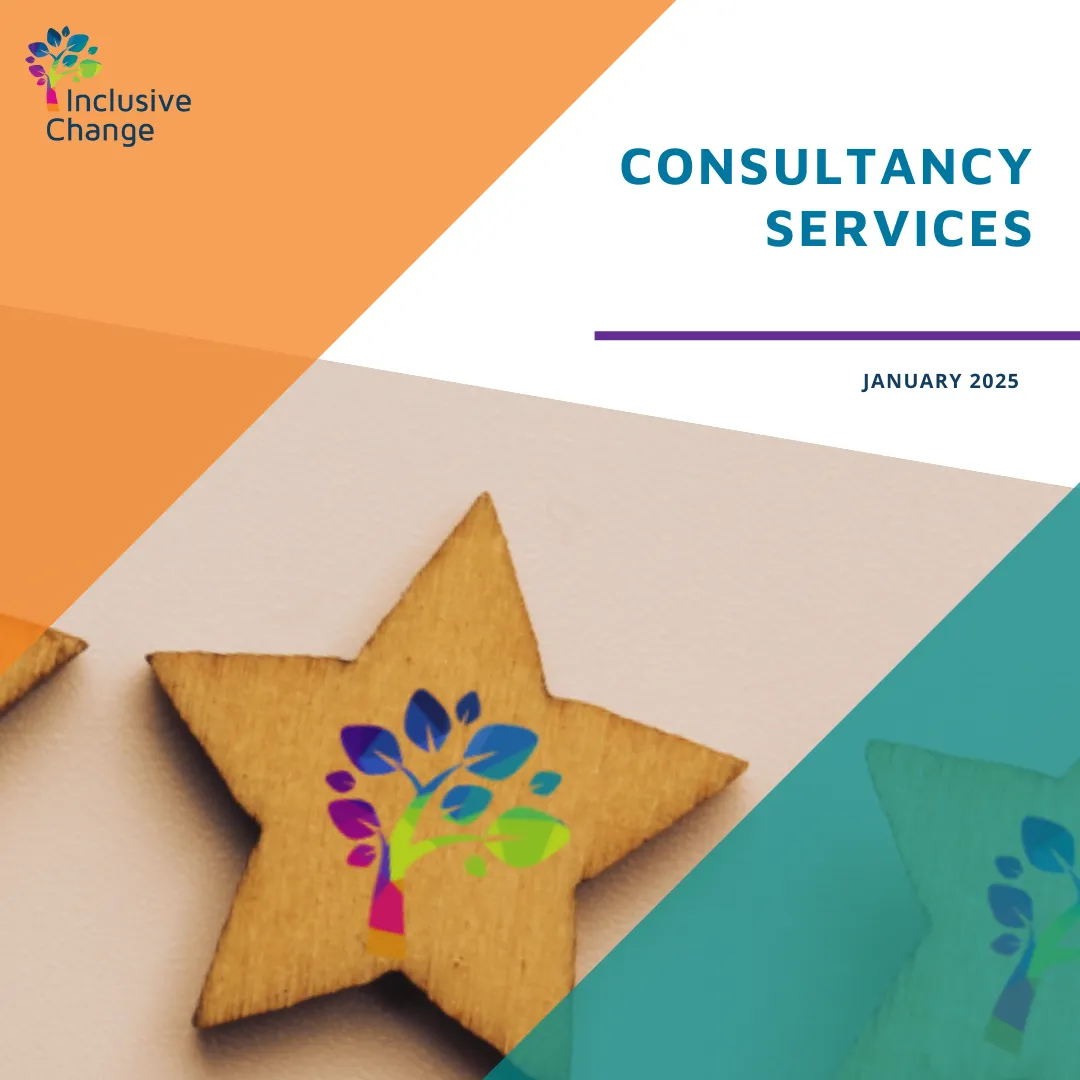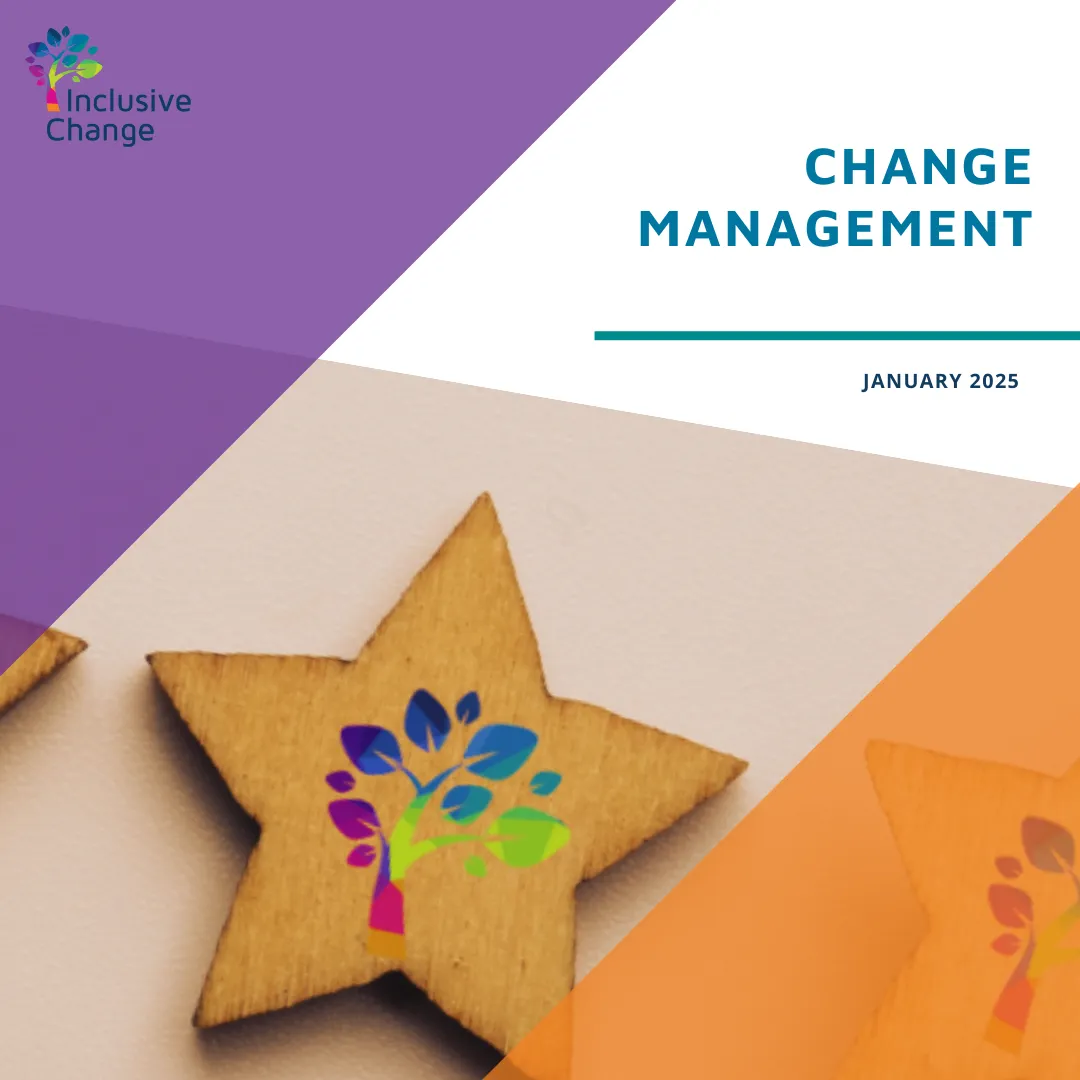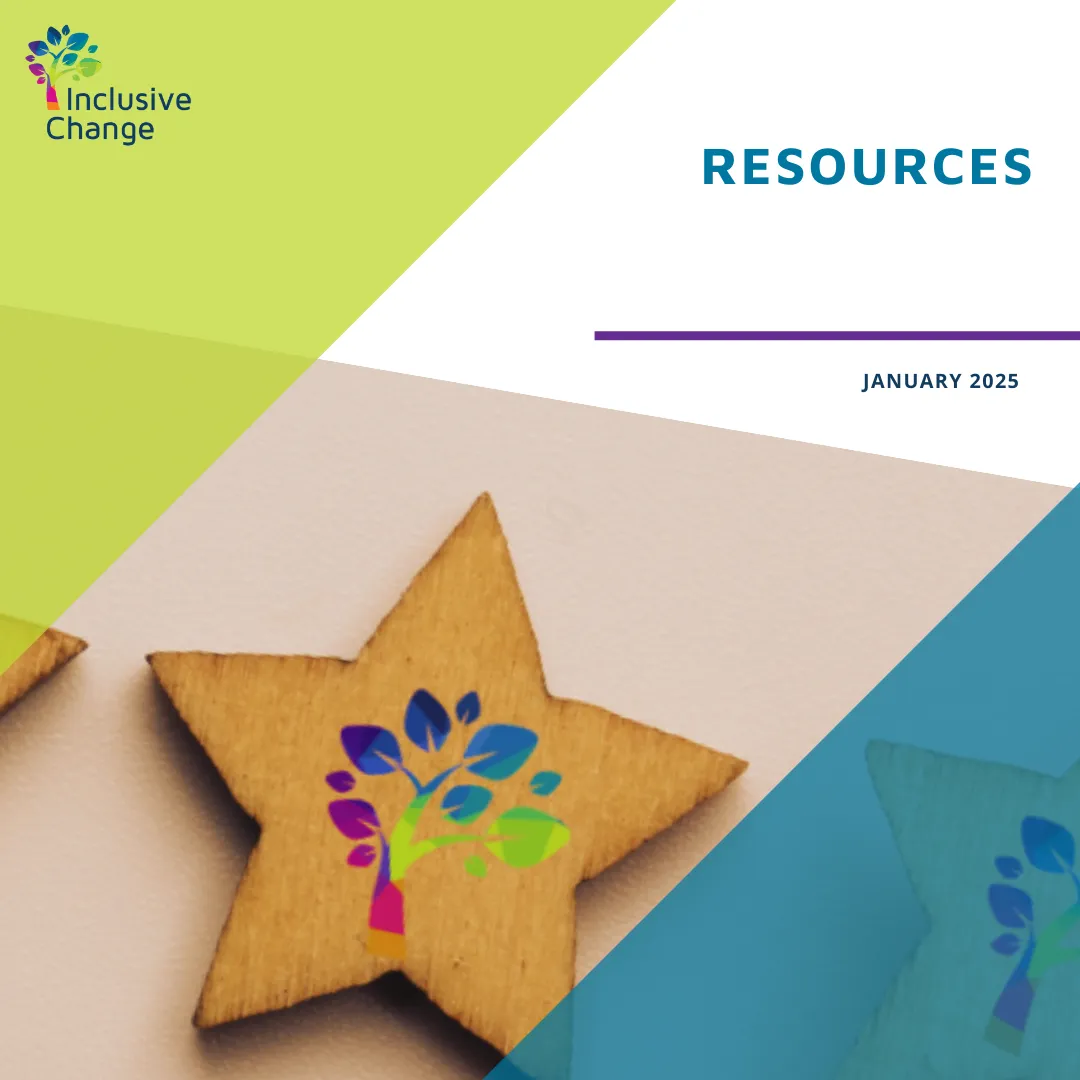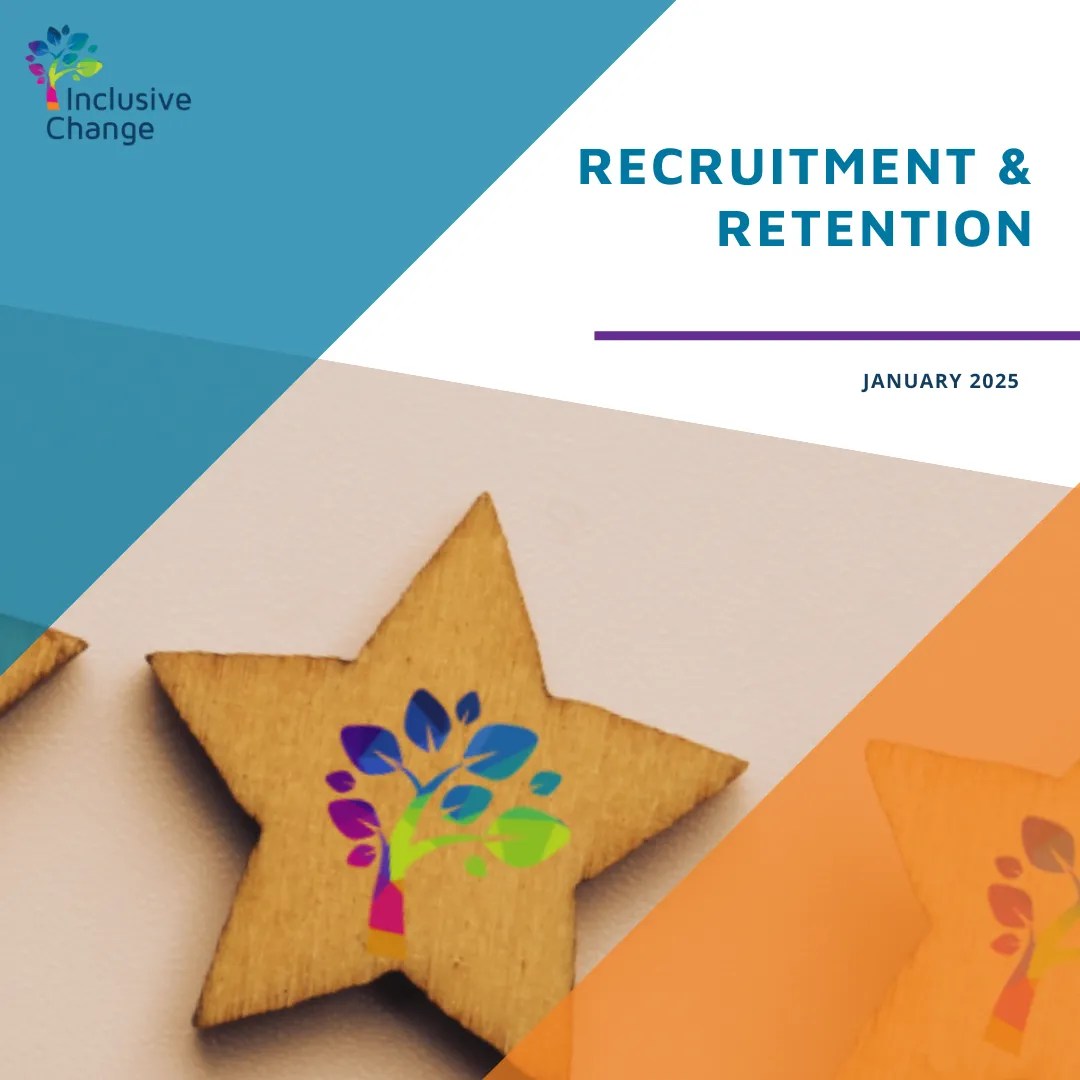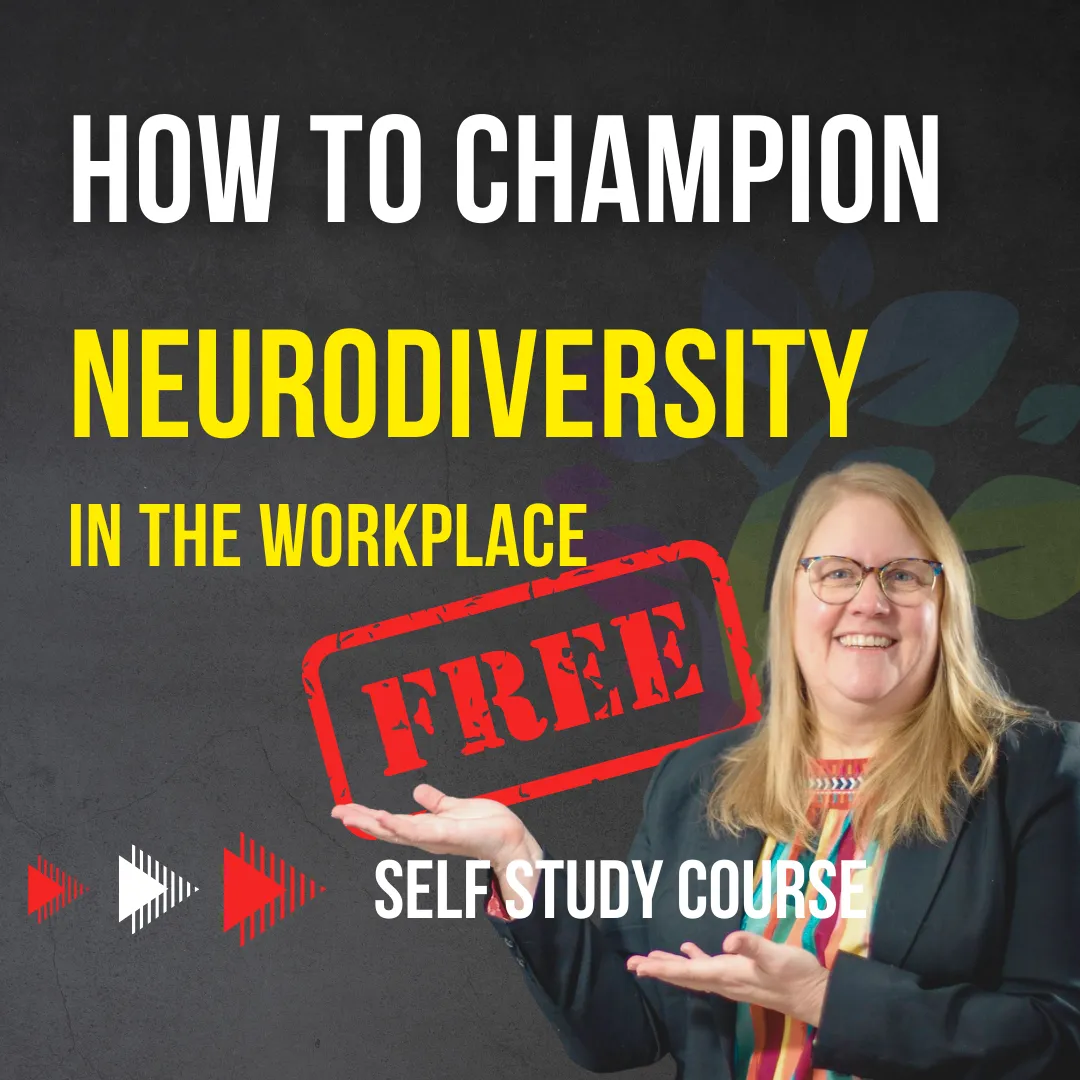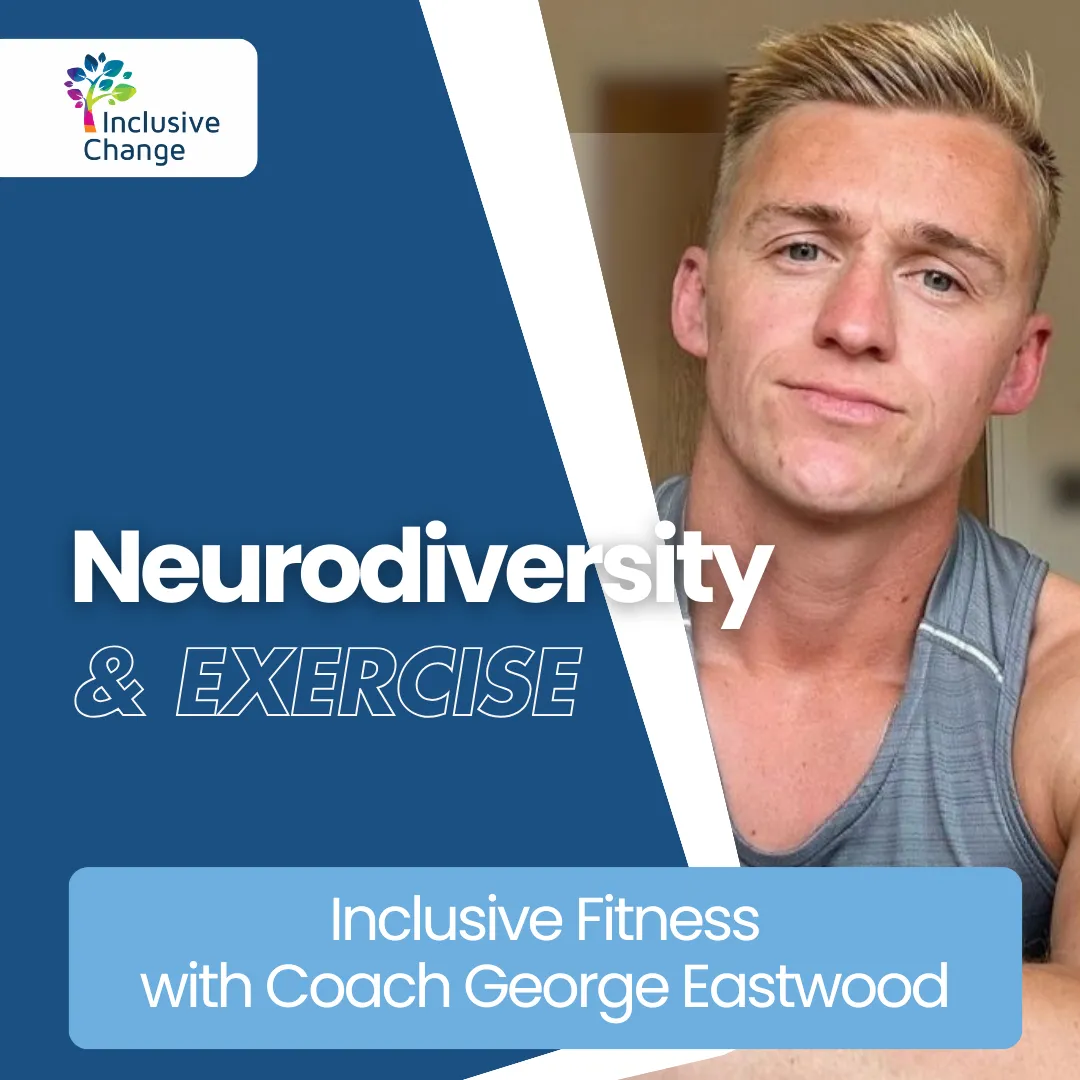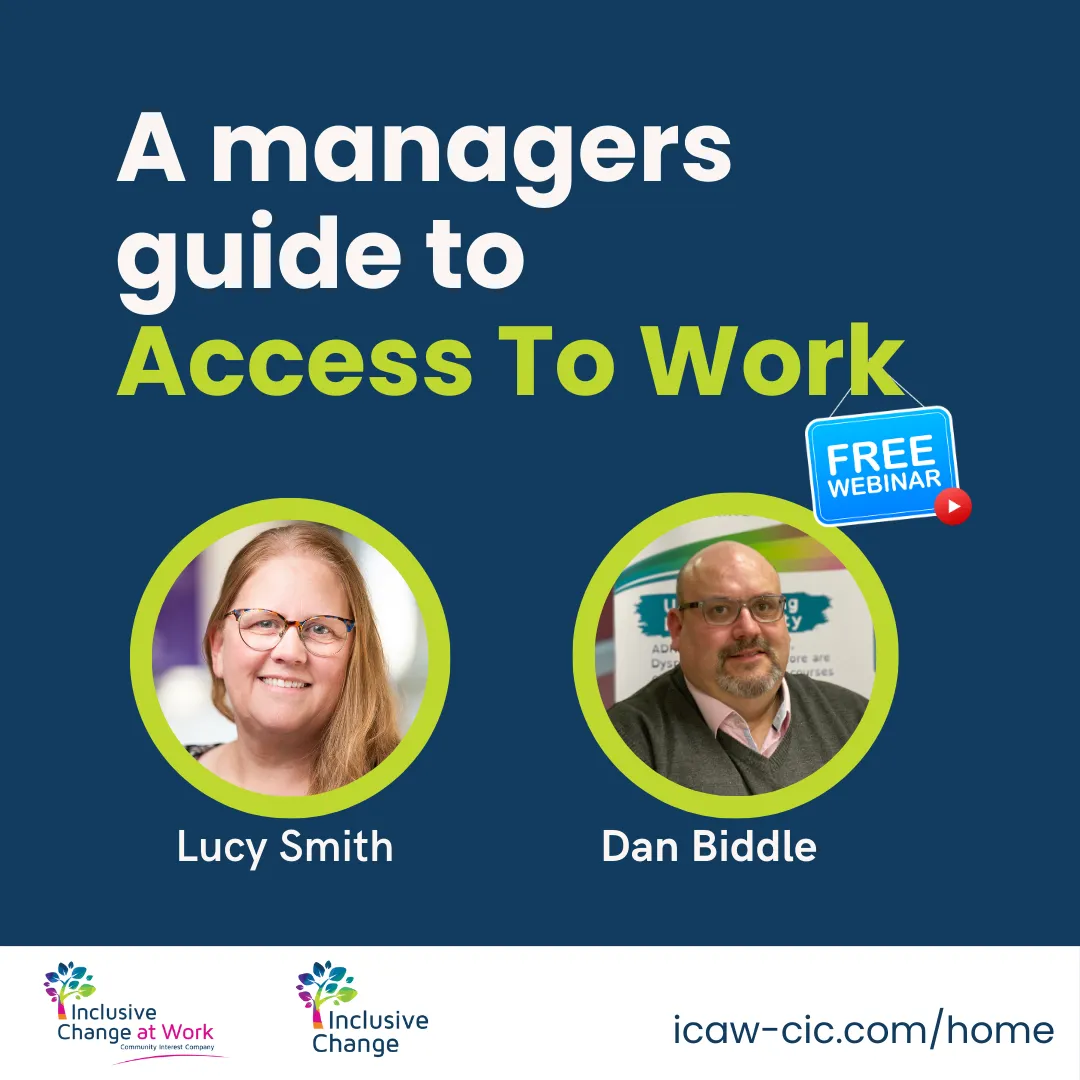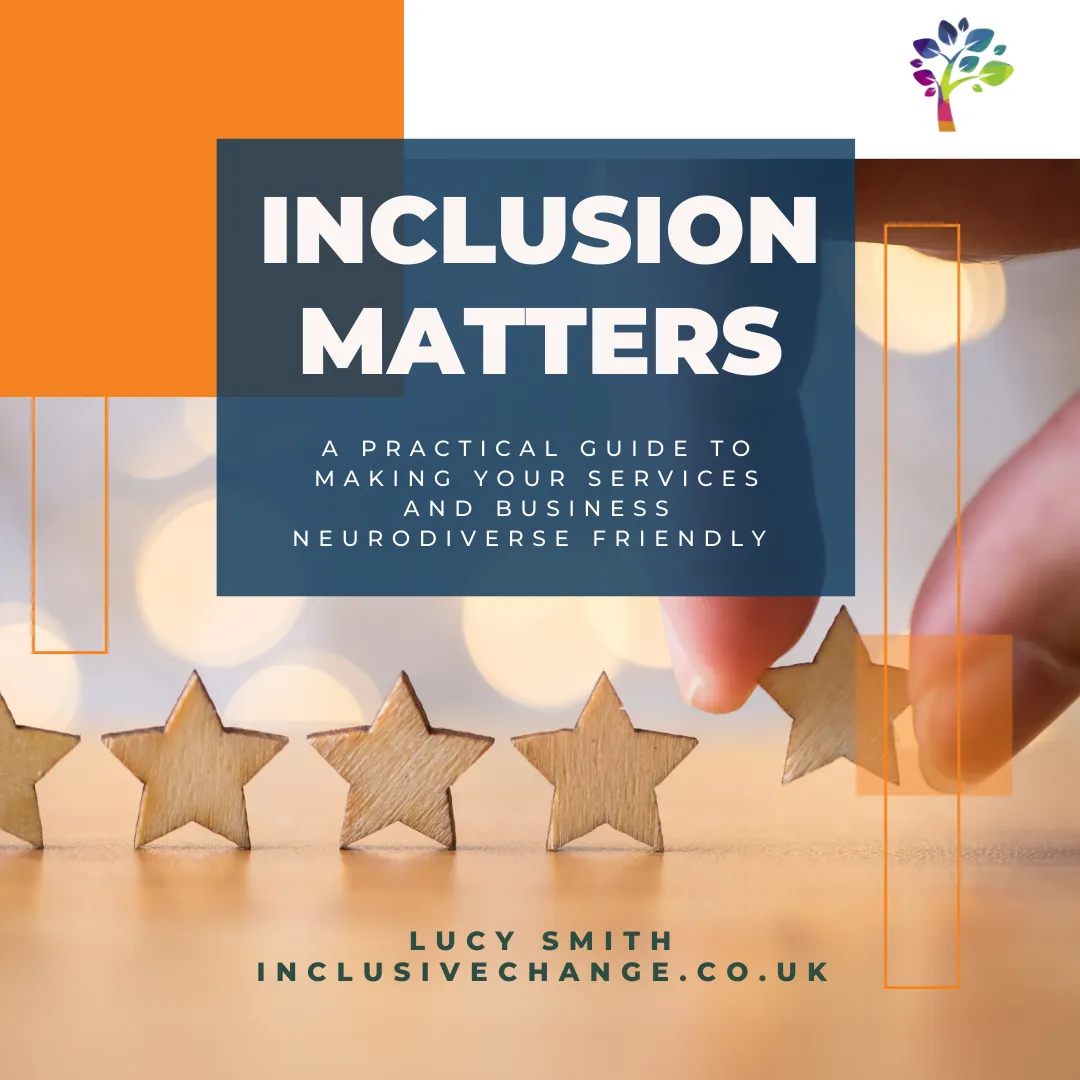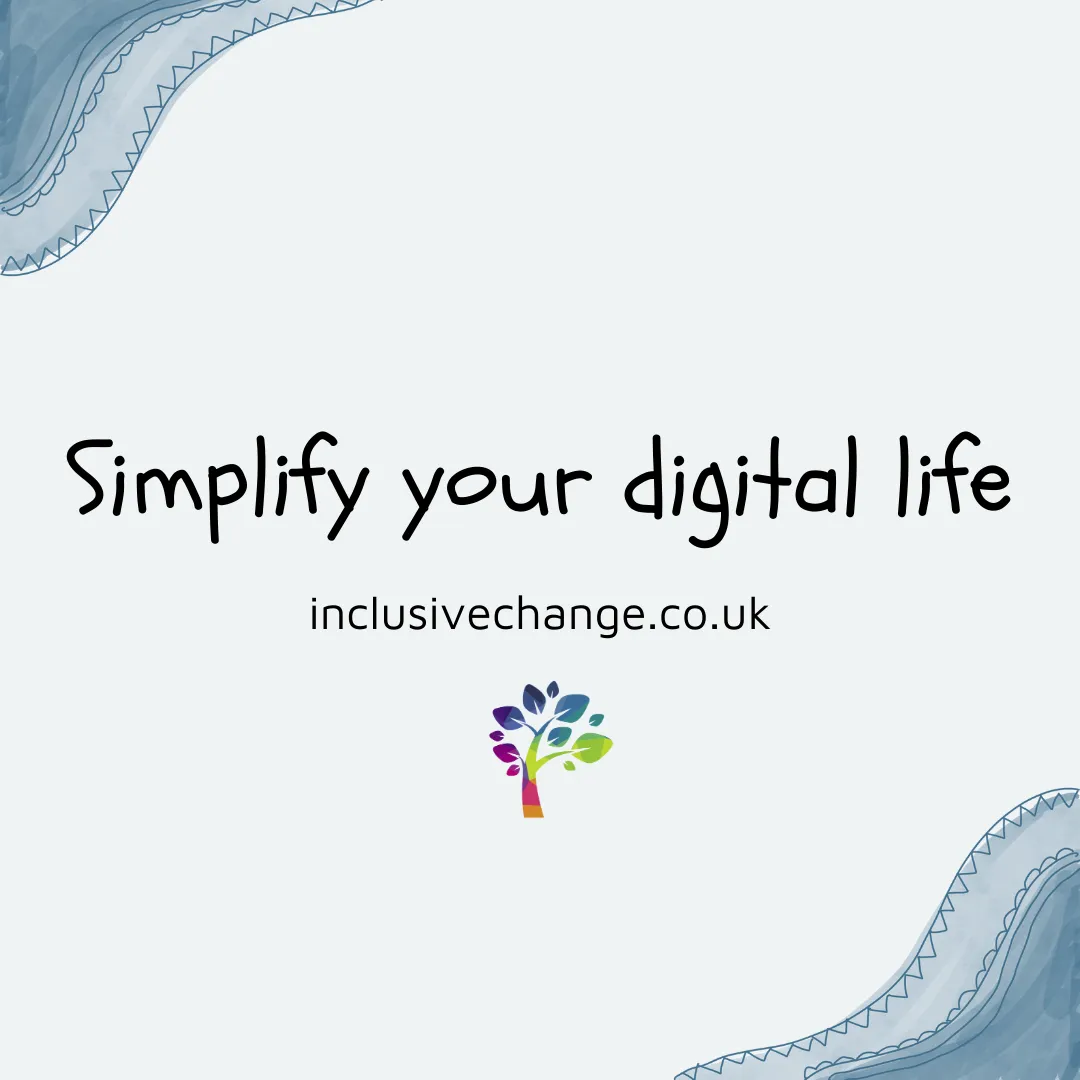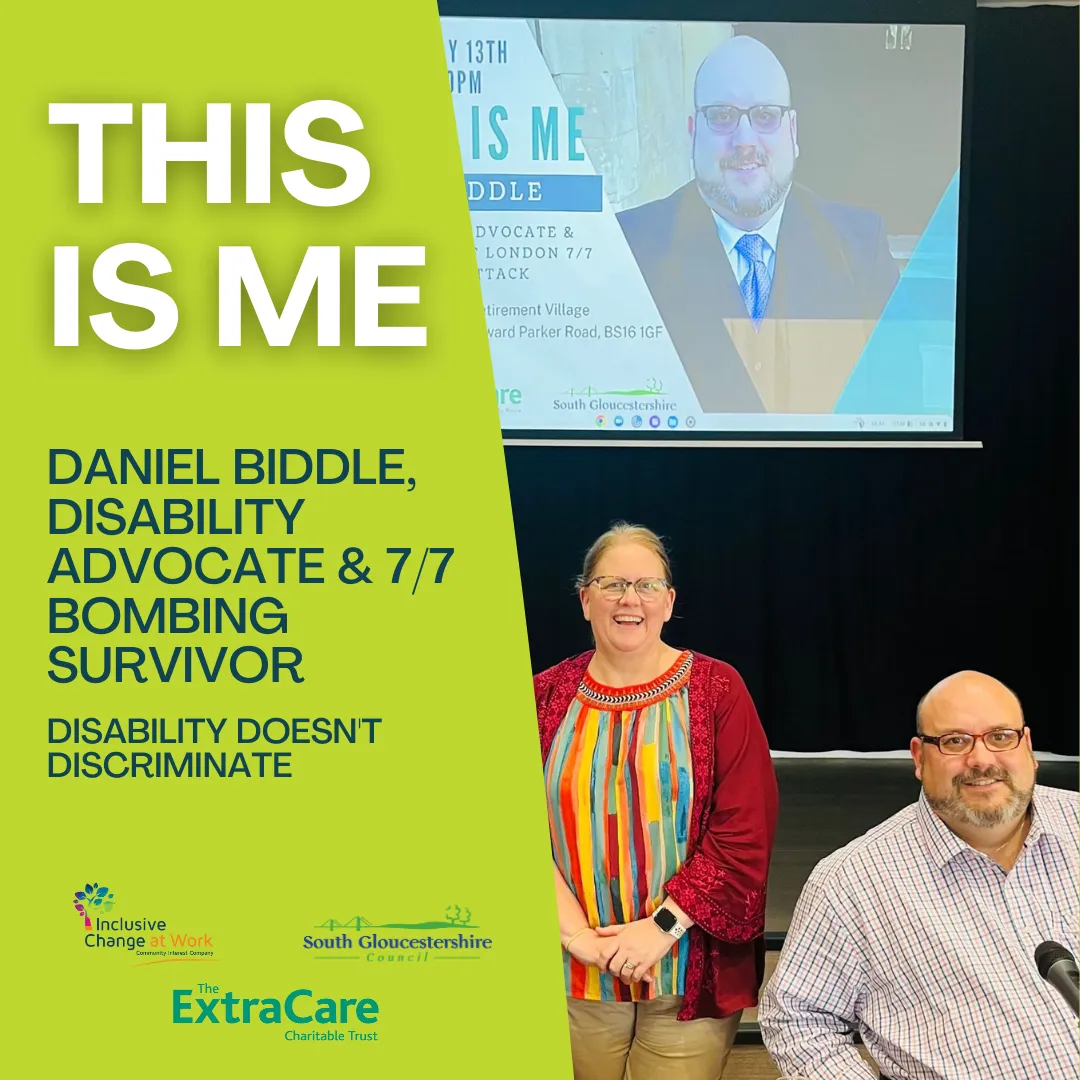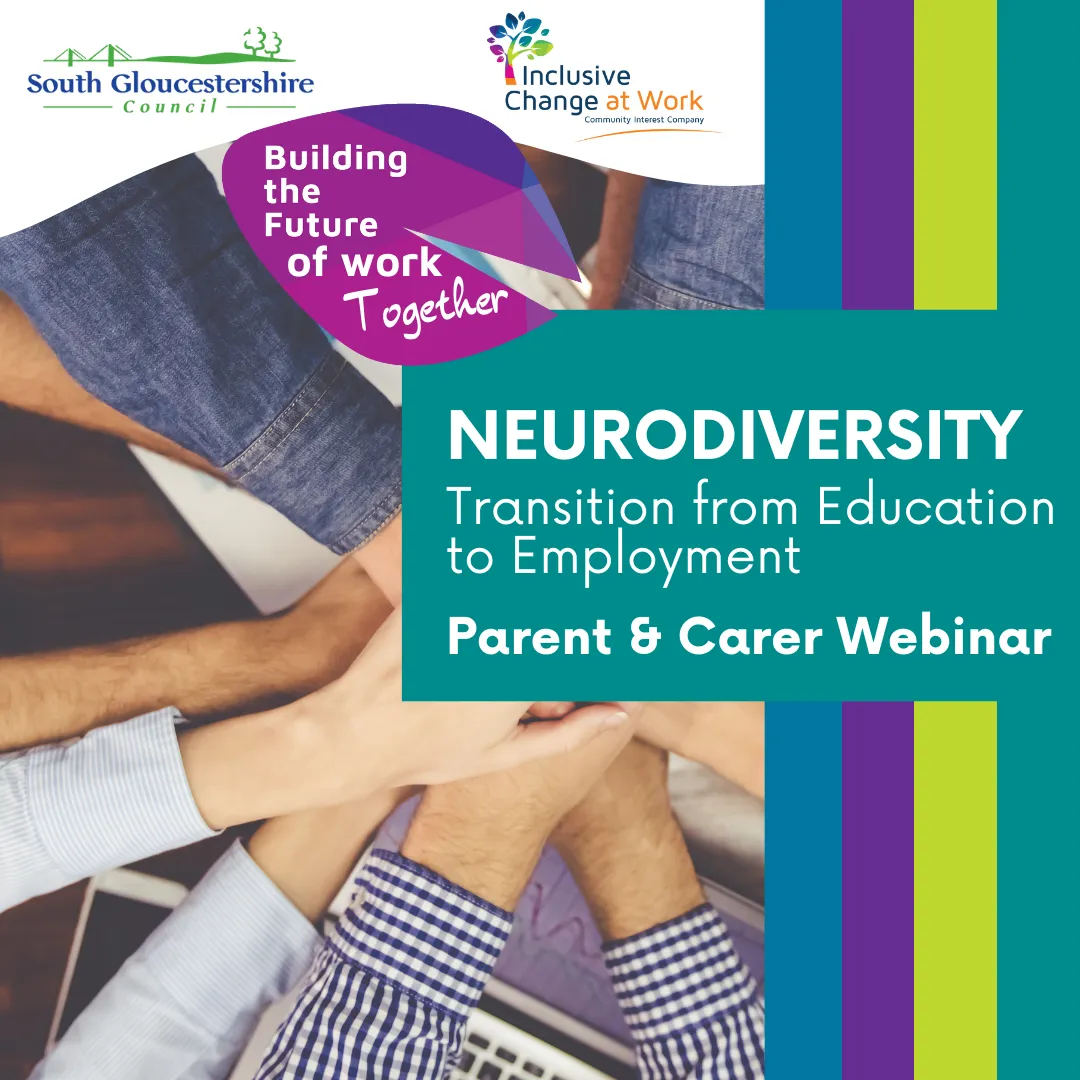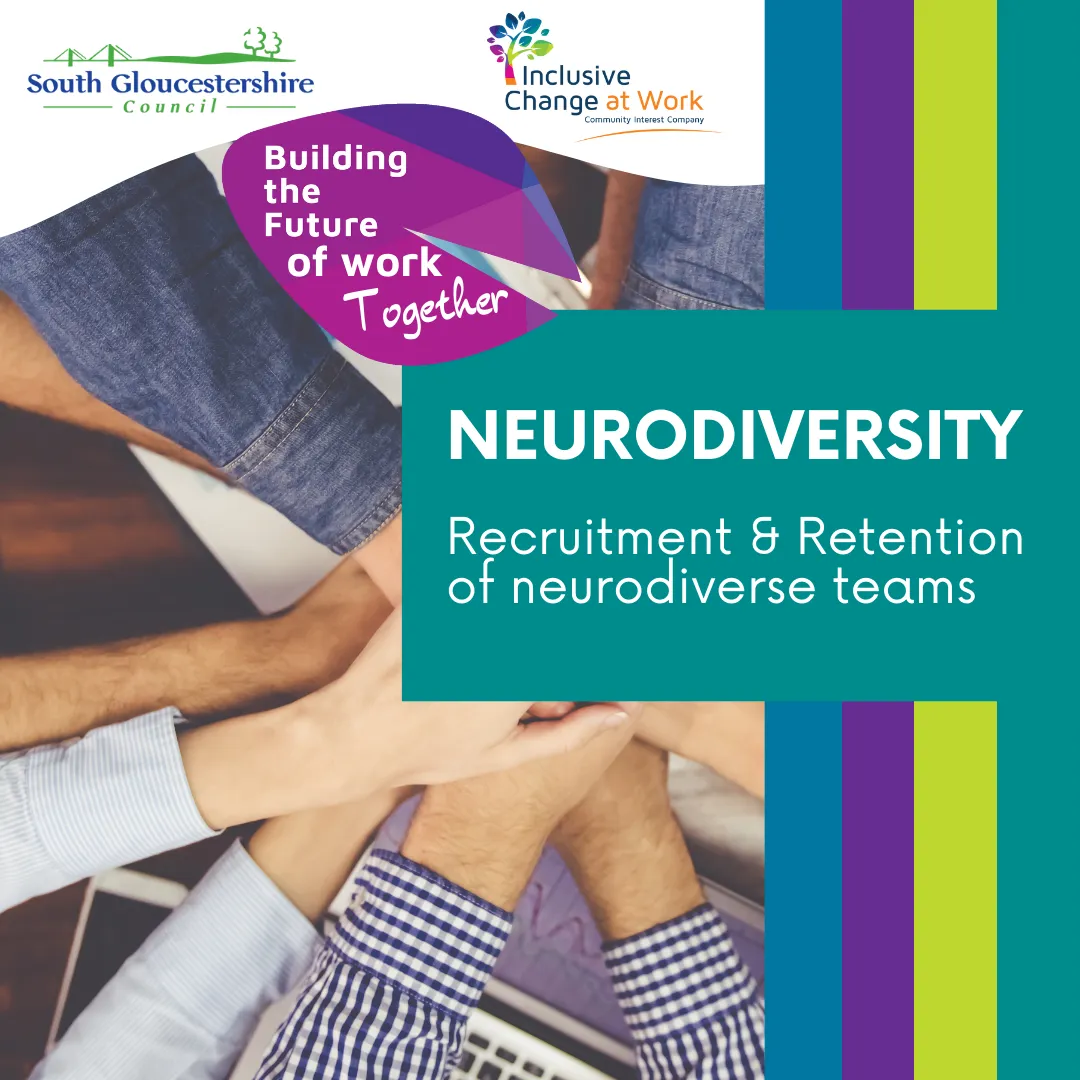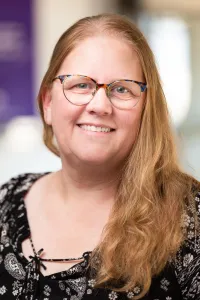Inclusive Change at Work
In the community
We want to thank you for attending our workshops in Emersons Green Village Hall, made possible with funding from Emersons Green Town Council. It has been wonderful to meet so many people and spark meaningful conversations about Inclusion.
We offer a variety of ways to collaborate and support your journey. Be sure to join our mailing list to stay informed about our latest projects, exclusive offers, and exciting initiatives.
To help you take your next steps, we’ve curated this page with valuable resources, insights, and new projects, designed to inspire and empower your conversations about neurodiversity. Dive in, explore, and Keep the Conversation Going!
A Recap of the Slides & Discussions
Let's Talk About Neurodiversity: Building an Inclusive Community Together
Date: 16th January 2025
Speaker: Lucy Smith
Key Takeaways From The Evening
Neurodiversity is Common but Overlooked – 1 in 7 people in the UK are neurodivergent, yet many face barriers in employment and inclusion.
Workplace Challenges Persist – Long assessment wait times, lack of disclosure (76%), and limited employer focus (49%) highlight the need for change.
Inclusive Workplaces Matter – Reasonable adjustments and open discussions help create supportive environments.
Younger Generations are Driving Change – 53% of Gen Z identify as neurodivergent, making inclusion more important than ever.
Action is Key – Safe spaces, advocacy, and meaningful support systems help neurodiverse communities thrive
Supporting Neurodivergent Families
Date: 30th January 2025
Speakers: Lucy Smith & SGPC
Key Takeaways From The Evening
Inclusive Spaces Foster Support – Creating environments where neurodivergent individuals feel safe and valued is essential for meaningful inclusion.
Resilience is Key – Building resilience through learning, coping strategies, and supportive frameworks helps neurodivergent families navigate challenges.
Workplace and Education Accessibility Matters – Reasonable adjustments in schools and workplaces ensure neurodivergent individuals can succeed without unnecessary barriers.
Open Dialogue Encourages Understanding – Safe spaces for discussion help break stigma, allowing neurodivergent individuals and allies to share experiences and seek support.
Ongoing Support and Resources Make a Difference – Access to helpful resources, events, and advocacy networks empowers neurodivergent communities to thrive.
Building the Future of Work With Neurodiversity in Mind
Date: 6th February 2025
Speakers: Lucy Smith & Andy Jackson
Key Takeaways From The Evening
Neuroinclusion is a Business Advantage – Embracing neurodiversity leads to increased innovation, productivity, and employee retention. Yet, many workplaces unintentionally create barriers for neurodivergent employees.
The Social Model of Disability Matters – Disability is not about the individual but the barriers in their environment. Simple workplace adjustments, like sensory-friendly spaces and flexible communication styles, can unlock neurodivergent talent.
Inclusion is Needed at Every Career Stage – From recruitment to promotion, neurodivergent employees face unique challenges. Clear job descriptions, structured onboarding, and strengths-based performance reviews help ensure fairness.
Recruitment & Progression Need Reform – Traditional hiring methods often exclude neurodivergent talent. Companies should prioritize skills-based hiring, alternative application methods, and clear promotion pathways.
Actionable Steps Make a Difference – Businesses should start by reviewing hiring practices, improving workplace accessibility, investing in mentorship, implementing inclusive policies, and increasing diverse representation
Menopause and Neurodiversity
Date: 20th February 2025
Speakers: Kirsty Brown, Fitness for Life, & Lucy Smith
Key Takeaways From The Evening
Menopause Can Intensify Neurodivergent Traits – Changes in hormones can amplify difficulties with memory, focus, sensory sensitivity, emotional regulation, and fatigue, making daily life more challenging.
Dopamine & Cognitive Support Are Crucial – Activities like exercise, music, creative outlets, and structured routines help maintain dopamine levels, while a diet rich in protein, omega-3s, and key micronutrients supports brain function.
Self-Regulation Strategies Help Manage Symptoms – Sensory tools, mindfulness techniques, and cognitive-behavioral strategies can help counteract brain fog, mood swings, and attention difficulties.
Hormonal & Cognitive Support Can Be Beneficial – Hormone Replacement Therapy (HRT) may help some individuals, while structured routines, planners, and reminders aid in managing cognitive challenges.
Community & Environmental Adjustments Matter – Reducing sensory overload, seeking peer support, and creating neuroinclusive workplace environments can improve well-being and productivity for neurodivergent individuals going through menopauseHere's some stuff
Digital Wellbeing for Young People
Date: 6th March 2025
Speakers: Lucy Smith & Emily Chittell
Key Takeaways From The Evening
The Impact of Digital Overuse – Excessive screen time, especially on social media, can negatively affect mental health, as seen in Owen’s experience of using their smartphone to escape emotions but ultimately worsening their mood.
Balancing Digital Consumption – It's important to be mindful of how digital tools influence our emotions and well-being, avoiding over-reliance on social media for coping.
Creating Digital Boundaries – Simplifying digital life can improve mental health, making space for healthier habits and real-world connections.
Support and Adjustments – Neurodivergent individuals may benefit from reasonable adjustments and access-to-work accommodations to create a more balanced digital experience.
Reasonable Adjustments and Access to Work for Neurodiverse Minds
Date: 20th March 2025
Speakers: Lucy Smith & Support Team
Key Takeaways From The Evening
Legal Obligation for Employers: Under the Equality Act 2010, employers must make reasonable adjustments to ensure that disabled employees are not at a substantial disadvantage in the workplace.
Defining Reasonable Adjustments: Adjustments can include changes to the workplace, working arrangements, task execution, or providing necessary support and equipment.
Disclosure and Employer Responsibility: Employees need to disclose their disabilities for employers to act on their duty to make adjustments. Employers are not obligated to assume or act on ambiguous signs of a disability.
Balancing Adjustments with Job Requirements: Adjustments should create fairness without lowering the essential standards of a role. Selection criteria should be inclusive but still maintain job integrity.
The Business and Cultural Benefits: Implementing reasonable adjustments fosters an inclusive workplace, reduces staff turnover, and leads to broader innovations that benefit all employees
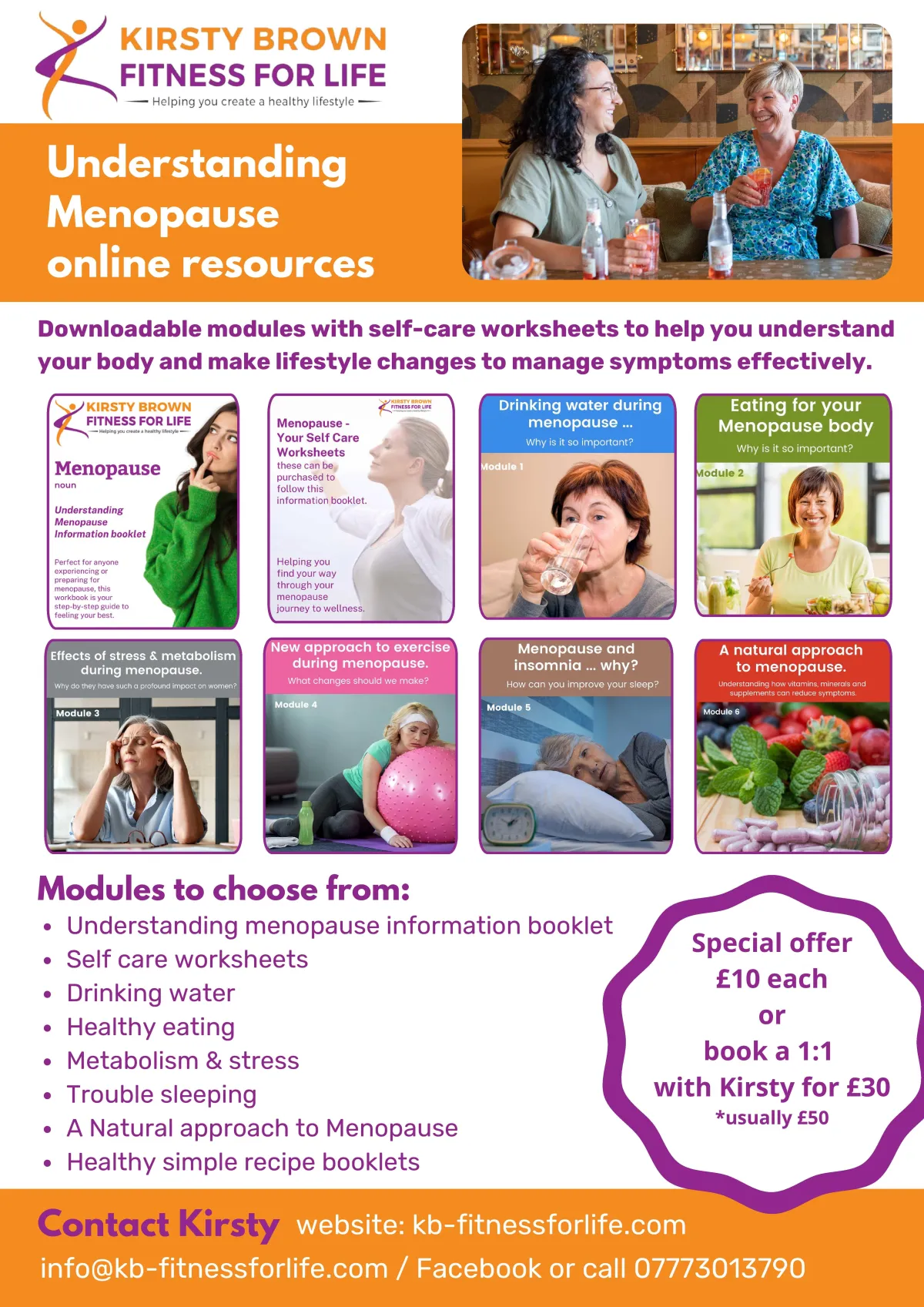
Recommended Groups and Services
Articles & Reports
30% More Productive: The ROI of a neurodiverse workforce - 2023
New data suggests that 15% to 20%
of the population may be neurodivergent – up from estimates of 5% to 10% just five years ago. This shift underscores the critical need for employers to broaden the horizons of their diversity, equity and inclusion (DEI) efforts to encompass neuro-inclusion
Half of neurodivergent employees miss work due to lack of support - March 2024
Half of neurodivergent employees have taken time off work due to their neurodivergence, a 5% rise from last year, according to City & Guilds’ Neurodiversity Index. The report also found that 36% received no workplace support, and 18% didn’t know where to seek help.
New Survey by The Harris Poll Reveals Workplace Stigma for Neurodivergent Employees - May 2024
Understood.org, a leading nonprofit empowering more than 70 million neurodivergent people who have learning and thinking differences, such as ADHD and dyslexia, today announced the results of a Harris Poll of over 2,000 U.S. adults ages 18+. The poll shines a light on the challenges and opportunities facing people with learning and thinking differences, such as ADHD, dyslexia, or dyscalculia, in the workplace.

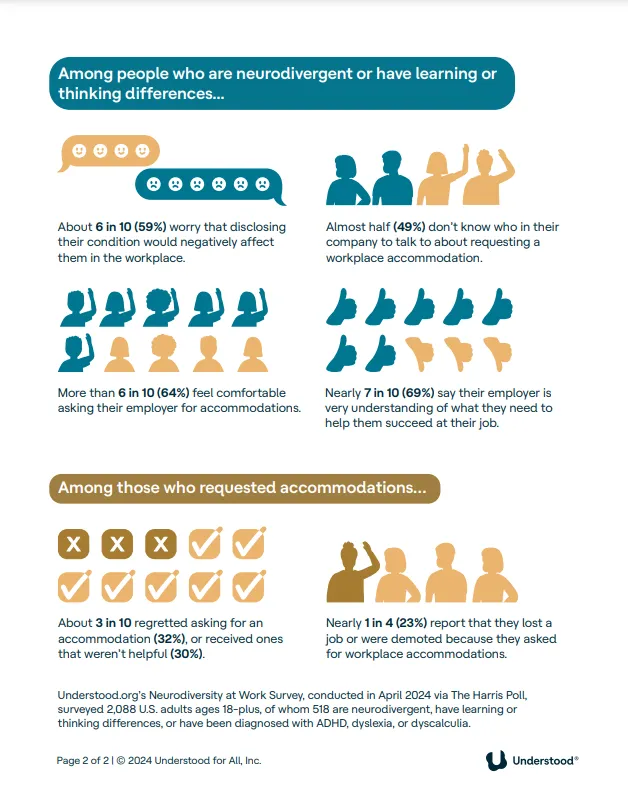
CIPD Neuroinclusion at work report 2024
The reality of neurodiversity means that every interaction at work takes place between people with different brains – yet, typically, very few organisations are thinking about neurodiversity or neuroinclusion. This represents a significant missed opportunity for organisations looking to address their key talent priorities at the same time as addressing inequalities at work faced by neurodivergent people
Meet Your Hosts and Expert
Speakers

Lucy Smith
Lucy is the founder of Inclusive Change and Inclusive Change at Work CIC. She has lived experience of neurodiversity and has been working in the area of neurodiversity for 6 years. Lucy combines a career in change management in internationally renowned organisations with experience in education to create thoughtful and inspiring training and consultancy services.
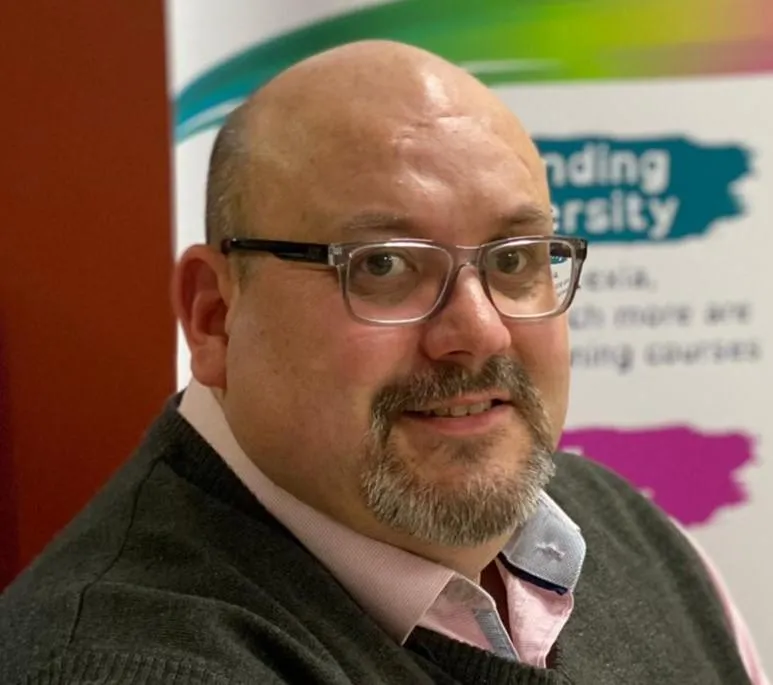
Daniel Biddle
Daniel is a highly experienced accessibility consultant with extensive experience of disability. Daniel has particular expertise in acquired disability, including acquired neurodiversity. He established the National Disability Employment & Advisory Service in 2022 and focuses on supporting neurodivergent young people & adults into employment.
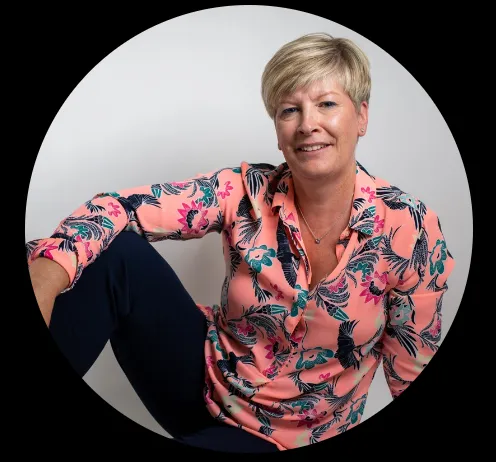
Kirsty Brown
Kirsty is a proactive, self-motivated individual with managerial experience in motivating teams and providing exemplary service. As a personal trainer and women's health coach, I use an empathetic approach to set and monitor achievable goals, adapting strategies to support clients through life's challenges. My expertise in menopause coaching includes workshops that empower women to confidently make lifestyle changes and navigate difficult times.

Vicky Henderson
Vicky is a multi-award-winning coach, mentor, speaker and trainer. She specialises in working with young people (11-24yrs) helping them grow in confidence, feel happy and generate hope and excitement for a better future.
In addition to working with young people, Vicky also works with parents, schools and employers, to ensure that all young people are afforded the support and help they need to thrive.

Andy Jackson
Andy is a Non-Executive Director of Inclusive Change at Work CIC, as well as an entrepreneurial and leadership coach and a dedicated advocate for neurodivergent individuals.
As a parent to a young adult navigating life with undiagnosed neurodivergence, Andy brings both professional expertise and personal insight to their work.
A skilled coach, facilitator, and trainer, Andy is passionate about enhancing organisational performance and supporting teams to thrive.
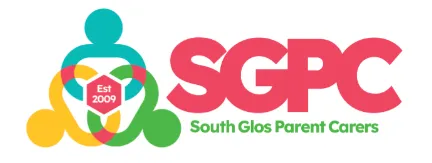
South Glos Parent Carers
South Glos Parent Carers (SGPC), the local parent carer forum that represents & supports parent carers of children and young people with Special Education Needs and Disabilities (SEND) in South Gloucestershire. Driven by a desire to make a difference for every SEND family in South Gloucestershire, SGPC attend meetings across the education, health and social care sectors to ensure service providers understand the challenges families face, so that positive changes can be made. SGPC also offer support to parent carers, via online and drop-in support sessions as well as workshops on a range of SEND topics. The SGPC team are all parent carers themselves, so they truly understand the SEND journey & challenges. From their personal experiences & those of their community, they have gained valuable insight, information and a wealth of SEND knowledge.
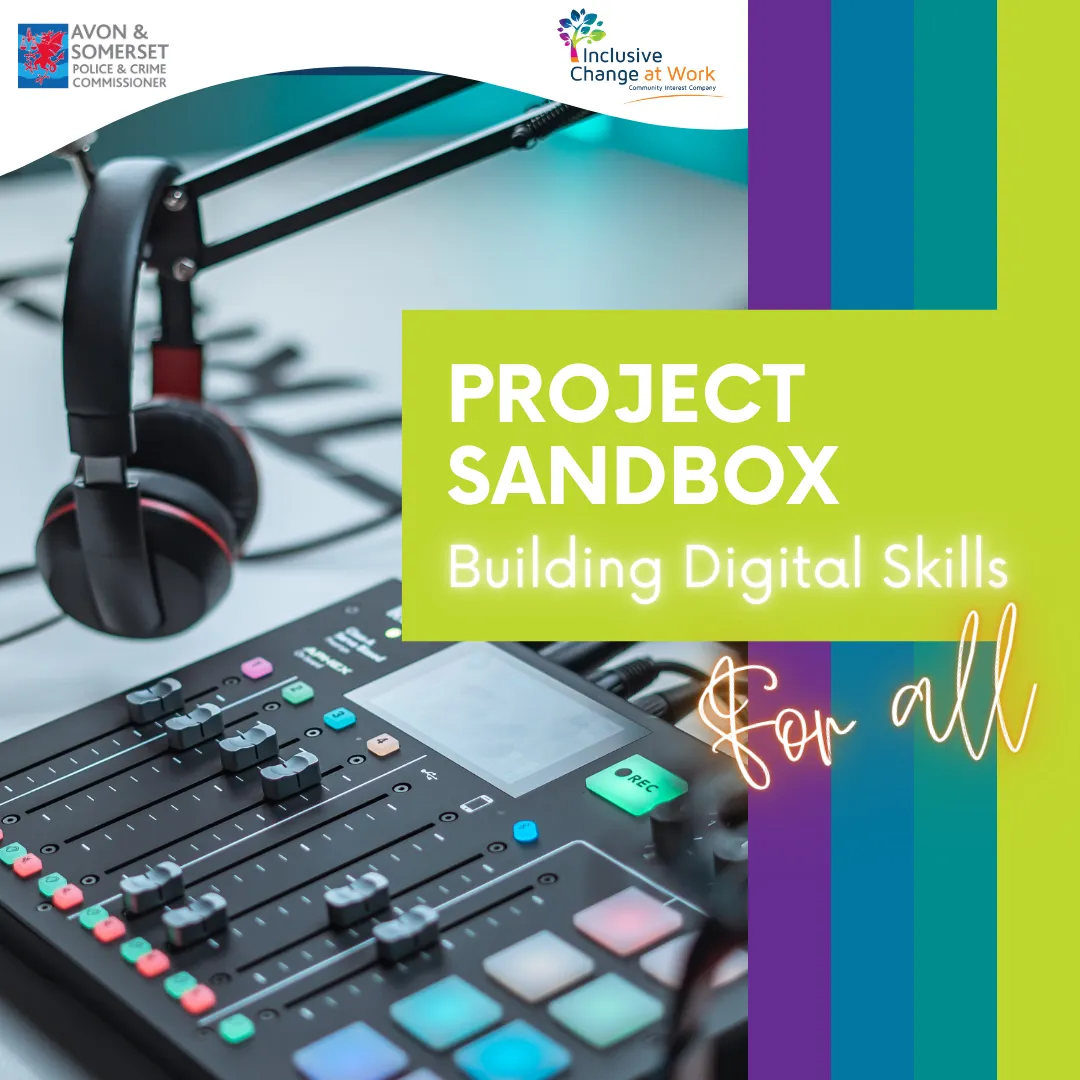
Discover Project Sandbox: Shaping a Safer Digital Future
Inclusive Change at Work CIC proudly presents
Project Sandbox, a ground-breaking initiative designed to champion digital safety and disability inclusion.
In collaboration with the Avon & Somerset Police & Crime Commissioner, we’re creating an engaging series of podcast and radio episodes that dive deep into building safer digital spaces for disabled and neurodivergent individuals.
We invite you to be part of this important conversation and join us in driving meaningful change.
Stay tuned, get involved, and let’s make the digital world a place for everyone.
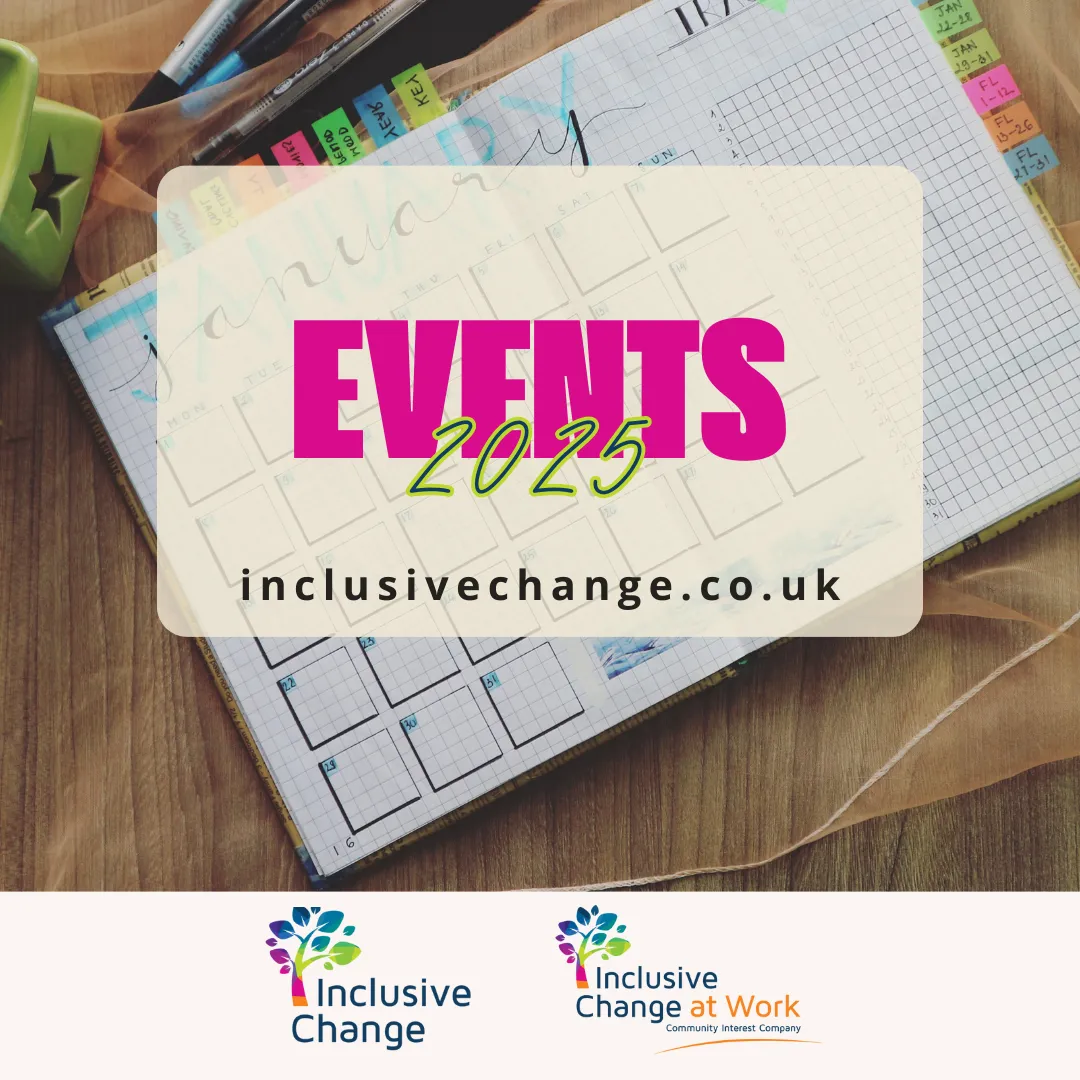
Important Dates in Our Calendar
June 2025
2nd - Understanding & Empowering ND in Sport - Glos. F.A
9th-10th - Festival of Sustainable Business - Bristol Beacon
12th - F'Up Exeter - The Bootlegger, Exeter
July 2025
22nd - F'Up Bristol - The Square Club, Clifton
Free Resources - Guides, Webinars & Courses
Check Out Our Latest Blog Posts
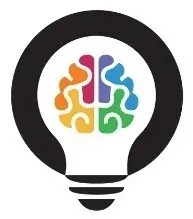
Receiving Official ADHD Diagnosis:
After years of debating whether to seek an ADHD diagnosis, I finally took the plunge in February 2024. In true ADHD fashion, that was the moment I actually got around to submitting the forms! But in reality, my journey had started months earlier—seeking advice while battling long-standing depression and anxiety. Looking back, I can’t help but wonder if I had been misdiagnosed or mistreated along the way.
When I finally received my official ADHD diagnosis as a 40+ year old—almost a year after starting the process—I expected to feel a whirlwind of emotions. Anxiety, self-doubt, maybe even frustration over all the years spent not knowing. But instead, what I felt was overwhelming relief. Even now, months later, as I write this, I find myself welling up. It was as if a weight I hadn’t even fully recognised had finally been lifted, and for the first time, I felt lighter.
After years of struggling, questioning, and trying to fit into school and work environments that never quite made sense to me, things started to make sense. It wasn’t that I was lazy, unfocused, or incapable—my brain simply worked differently. And now, I had the confirmation I needed to truly understand myself.
The Journey to Diagnosis: Choosing the Right Path
Navigating the process of getting an ADHD diagnosis as an adult can feel like an uphill battle, especially within the NHS and when you have spent your life masking, so don't look like you have ADHD! The wait times can be incredibly long, and the thought of being placed on a 4 year plus waiting list was daunting. However, I discovered the ‘Right to Choose’ pathway, which allowed me to receive an assessment much faster while still following NICE guidelines.
Through this route, I was able to access a specialist ADHD service outside of my local NHS trust. The process remained thorough, professional, and evidence-based, but it allowed me to receive answers much sooner than the standard NHS waiting times. If you're considering seeking a diagnosis and are concerned about long delays, I highly recommend looking into the ‘Right to Choose’ pathway.
That said, the experience wasn’t without its challenges. There were times when I had to chase up correspondence, navigate frustrating administrative systems, and ensure forms were correctly processed. When I first registered for ‘Right to Choose’ through my GP surgery, I was given a wait time of 26 weeks. However, as those weeks passed with little progress, the reality stretched to a full year before I completed my assessments and received a diagnosis. The primary reason given for the delay was a surge in referrals.
So, while ‘Right to Choose’ can be a viable and effective pathway to diagnosis, it's important to manage expectations. Delays can still occur, but being proactive—following up on progress and staying informed—can help keep things moving. If you’re willing to advocate for yourself and navigate occasional hurdles, this route can still offer a faster and more accessible way to get the answers and support you need.
The Relief of a Diagnosis: Why It Matters
At first, I didn’t think I needed an official diagnosis. After all, I had managed to function for years without one. My main motivation was to support my son, who was diagnosed with ADHD at seven and was struggling to understand his own journey. I wanted to show him that he wasn’t alone—that we were on the same team. But as I moved through the process, I realised that gaining a deeper understanding of my ADHD wasn’t just for him—it was about empowerment and validation for me, too.
For years, I had internalised my struggles as personal failings. The procrastination, the forgetfulness, the pressure to meet unrealistic expectations, the impulsivity and poor decision-making, the constant need to please everyone but myself. I thought these were flaws, signs that I just wasn’t good enough. But my diagnosis reframed everything. It helped me see that these weren’t character defects but rather symptoms of an ADHD brain that processes the world differently.
This newfound understanding has allowed me to approach myself with kindness and patience. I am learning to be kinder to myself, to stop berating myself for struggling with things that seem effortless for others. Instead, I am learning to work with my brain, rather than against it, embracing strategies that support me rather than forcing myself into a mold that was never meant for me.
A Newfound Sense of Relaxation and Self-Acceptance
One of the most unexpected outcomes of my diagnosis has been a deep sense of relief and relaxation. Without even realising it, I had spent years masking my struggles and constantly battling against my natural tendencies. The tension of trying to "keep up" had become so ingrained that I didn’t recognise the weight of it. Now, I am slowly learning to embrace myself.
I am using tools and strategies that genuinely support me, rather than trying to fit into systems that were never designed for my brain. Instead of constantly feeling like I’m failing at life, I now understand that I simply needed a different approach. For the first time in years, I feel confident that I can do more, not because I’m forcing myself to, but because I finally believe I can. After years of telling myself to play it safe for fear of failing or being unmasked, I’m starting to trust myself and step outside of my comfort zone.
Moving Forward with Confidence
Getting my ADHD diagnosis was not the end of my journey, it’s just the beginning of a new chapter. One where I approach myself with understanding, compassion, and the right support in place. I have started to explore different treatment options, including coaching and workplace support via Access to Work, finding ways to create an environment that works for me rather than against me.
If you are questioning whether you might have ADHD or are considering seeking a diagnosis, know that you are not alone. There is support, understanding, and relief on the other side of the process. And while receiving a diagnosis doesn’t change the past, it provides clarity for the future, a future where you can finally work with your brain, not against it.
For anyone navigating their own ADHD journey, remember: seeking answers isn’t about labels, it’s about self-awareness, empowerment, and finding the tools to help you thrive. Yes, I now have a label, but it’s mine to share on my terms, and it doesn’t define me. You deserve understanding, support, and the chance to live life on your own terms. We all do.
Inclusive Change At Work CiC
Bradbury House
Wheatfield Road
Bradley Stoke
Bristol
BS32 9DB
Companies House: 13271923
ICO registration: ZZB293922
UK register of Learning providers
UKRLP: 10090653
